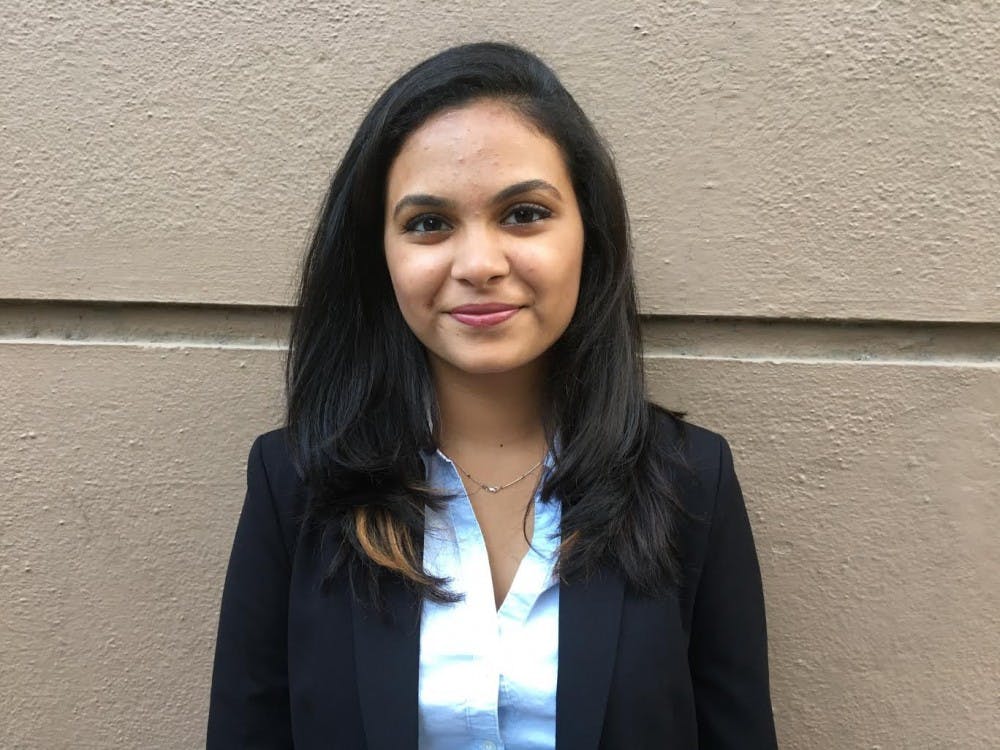When I first came to college, I had big plans. I wanted to be able to get a job so I could support myself since my parents were already paying for tuition. I wanted to get an internship at all of the news stations based out of D.C. It made sense—I had traveled all the way to America, was paying tuition without any financial aid and wanted to make the most out of my time here. The United States has always called itself the land of opportunities and promises: you can do whatever you want to do. What America doesn’t advertise is how many restrictions I would face and how limiting my student visa would be.
I applied to schools in the U.S. and the U.K., but one of the major reasons I chose the U.S. over the U.K. was because I knew that in the U.K. I was not allowed to work part-time — that opportunity was reserved for students from the European Union. Since I would have studied in London, the cost of living would have been very high and I figured that instead, I would go to D.C. and get a job. I came to D.C. and set out to do that very thing but found that I was only allowed to work on campus.
The issue arises when most on-campus jobs are reserved for students with federal work study. Oftentimes, the openings that are available to everyone are jobs that required a special skill set like Graphic Design Assistant, or give preference to graduate students. This was incredibly frustrating. From my experience at AU, I have noticed that there is an assumption that all international kids are rich, but that is not always the case. I am lucky enough to go to this school because my parents, with the hope that my degree will allow me to make enough money to support them in the future, are willing to spend massive chunks of their savings so that I can get a stellar education. Because of this, I wanted to do my part and fund my social life, but have not been able to.
This policy of restricting students to on-campus jobs, however, still makes sense to me -- sort of. If international students can work off-campus, there is the possibility that they will work at said job for long periods of time, which means that a company might have to sponsor them in the future, and they would apply for an H1 work visa after their student visa expires. But what I do not understand is the internship dilemma.
International students are only allowed to intern for credit, which means they are unpaid. This is incredibly problematic because the internship must be specifically related to what you are studying and should prove that it is helping you academically. But what happens if you get an internship outside of your major? Or if you get an internship with someone who is willing to pay you but does not know, or have the time, to find out what goes into a for-credit internship? It takes away not only an opportunity for a student to explore another field but also an opportunity to gain real world experience. Furthermore, students have to pay AU more money to intern and complete assignments based off their internship, and cannot work at the same place for more than one semester.
This poses several problems for students. Many students intern over the summer but that option becomes a game-changer when you have to pay AU for a class. If that extra amount is not budgeted for into your finances it can be difficult to afford, especially on top of additional expenses like housing, dining and transportation.
In addition, students must deal with the time commitment associated with their internship. I am currently interning at Glow Washington, and the credit goes towards my Marketing minor. However, I hadn’t declared my minor when I was accepted for this internship and had to convince advisors and hastily declare my minor to get the process completed in time. I originally planned to take the course for three credits so that I would not have to work at a marketing firm again, as it is not my major, even though I would have to pay extra tuition for the extra credit.
However, I was not allowed to do this. In order to take a class for three credits, students have to work at least 210 hours over a 14-week period. This is a massive time commitment and the commute, if you’re interning downtown, can often be almost an hour long. On top of this, you have to complete an assignment or project related to your work. This is much more of a time commitment than a regular three credit class, making it incredibly difficult for students to manage in addition to their regular workload.
Finally, the fact that a student cannot work at the same internship for more than one semester can directly affect the amount of opportunities available after graduation. This is directly denying students opportunities they have earned. If a company has hired an intern and wants them to continue working after graduation, it should be up to the company’s discretion. Academic credits should not get in the way of students pursuing their interests outside the classroom and if a company is willing to sponsor a foreign national, then they should have the right to do so. This restriction prevents students from creating stronger connections with employers, learning about the field they are working in and creates a dynamic between the employer and the student that makes the student seem undesirable. In the event that an internship does lead to a job, it would only be because the student deserves said job because America gave them the opportunity that it promised it would.
Finally, I think that International Student Services should be actively trying to tell students what they can and cannot do from the very beginning rather than let students find out on their own, potentially jeopardizing an opportunity. At AU, internships are a key part of our campus culture and I have oftentimes felt left out simply because I was not allowed to pursue my aspirations. I was told to check with the International Students and Scholars Services office before doing anything that was somewhat work-related but did not know where the line was drawn. I was originally offered a job at Glow Washington one year ago, but was not able to accept it because it was in the middle of the semester. When I tried again in the spring, I lacked information on the process and, by the time I found out what the procedure was, the deadline had passed. I recall going to the office a year ago, and being reprimanded for even telling my employer that I would be willing to start immediately.
It’s unfair that international students are given a sense of false hope when they come to study in the U.S. The institutional issues with the structure of the student visa program inherently put these students at a disadvantage -- and that is inherently wrong.





